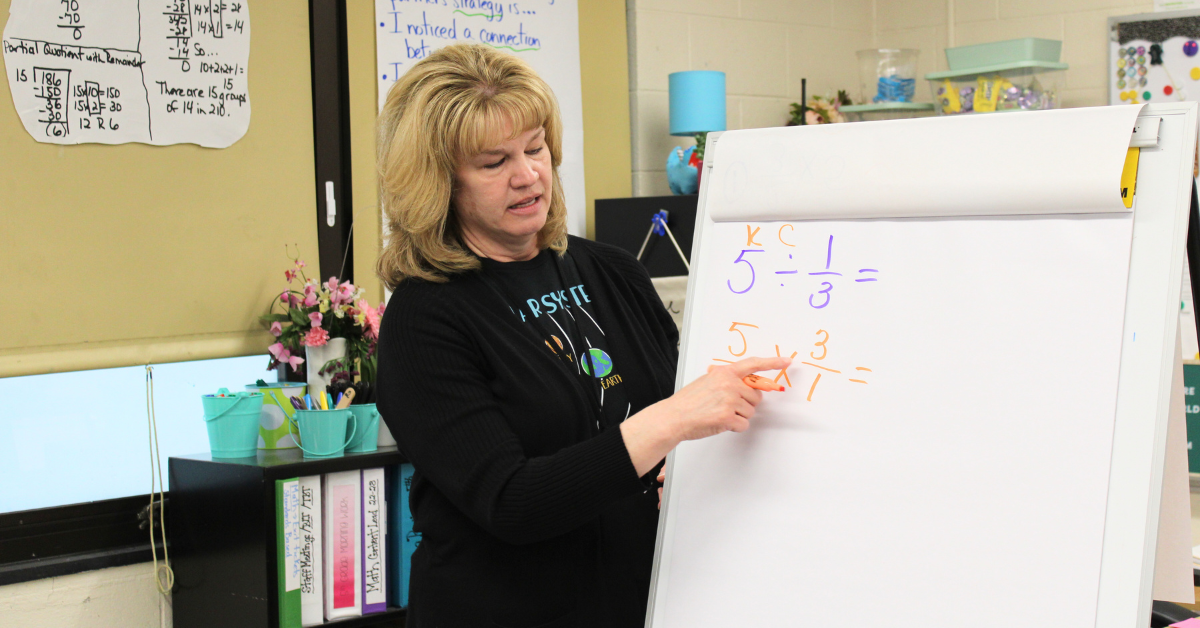- Avondale Elementary School
- Homepage
Teacher Appreciation Week: Lindbergh Elementary School’s Erica Golden

May 06, 2024 – At the beginning of every school year, Erica Golden makes a promise to her fifth graders. The Lindbergh Elementary School teacher assures her students on the first day that they will enjoy math by the end of the year.
Golden is a math teacher who recognizes that the subject is contentious for some students. Her goal is to show students that math doesn’t have to be repetitive and that there isn’t just one way to solve a problem.
Golden’s philosophy on math isn’t something she experienced when she took math classes as a student. When she was younger, math was more regimented, with a focus on doing every problem in a textbook from beginning to end. For Golden, this learning method did not foster a love of math.
She wanted to do things differently for her students. No one day in her math class looks the same. Some days, students focus on solving problems in their textbooks, as Golden did when she was young. But math in her class is not a solitary activity. Rather than quietly completing questions, Golden encourages students to work together to discuss their problem-solving strategies. If a student successfully completes half of the problem but is unsure what step to take next, fellow students take a look at their work and offer advice.
“We do a lot of peer support in our classroom,” Golden said. “Students talk it through until they come up with an answer. [After the problem is solved,] I call kids up to the front, and they explain their strategies.”
One thing Golden stresses to her students is that there isn’t one correct process for solving a problem. She chooses students with different ideas and problem-solving methods to explain their work to others, showing the variety of ways a problem can be completed.
Myah Brown is a student in Golden’s class, and she enjoys the freedom to choose her own method for solving problems.
“My main strategy for solving problems is traditional algorithm,” Brown explained. “Sometimes, that doesn’t work with a problem. Then, I will try partial product or something else.”
Brown’s understanding of different strategies is something Golden has worked hard to teach her students. She said the knowledge of strategy is far more important than the correct answer.
“Our students know that even if they don’t come up with the right answer, as long as their process and strategy was workable, we can work out the details,” Golden said. “We celebrate the process, not necessarily correct answers.”
This teaching style helps students feel confident trying even when they don’t know the answer.
“We want kids to take risks, and if you shut them down, they’re never going to take risks because they fear being wrong,” Golden said. “We want our kids to not fear going out on a limb [with their strategies.]”
As the year comes to a close, Golden’s promise to her students is coming true. Thanks to Golden’s encouragement, the students have learned that math isn’t as scary as they once thought it was, and even those who disliked math at the start of the year are coming to enjoy it.







